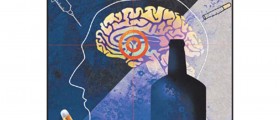Drug abuse, also known as the substance abuse, is a maladaptive pattern of use of substances that are usually psychoactive or performance enhancing. Typically, these drugs are not used in a medical or therapeutic context but rather to achieve altered states of mind. Drug abuse most commonly includes alcohol, amphetamines, benzodiazepines, barbiturates, cocaine, methaqualone, and opioids.
Drug abuse is a serious issue that has various hazardous consequences not only for the individual but also for their close environment and the society as a whole. The most important thing in prevention of drug abuse is to become acquainted with different hazardous consequences and understand how severely it may change one’s life.

Legal consequences of drug abuse
Drug abuse is prohibited in federal, state and local levels in the United States. If a person gets convicted because of the drug abuse, these records can change his or her life in many ways. A criminal record is something that doesn’t just simply get erased. A person convicted for drug abuse may not be able to engage in particular professional fields nor to get certain types of certifications and licenses, since these options may be closed for individuals with criminal records.
Certain employers will also check their applicants for a criminal record, namely in the armed or police or public services. The most important consequence is the one a criminal record makes on the individual’s standing in the community. Many people are discriminated because of their criminal record.
Health consequences of drug abuse
Drugs affect every major system in the human body affecting the motor function, concentration and perception. Mood–altering drugs, including alcohol, may lead to different health problems, risky behaviors and accidents such as road accidents, unprotected sex, homicide, suicide, needle sharing, etc. People who abuse drugs are at the highest risk of contracting HIV and other infectious diseases. People who abuse drugs typically have different mental problems, including depression, apathy, withdrawal symptoms, suicidal thoughts and paranoia. Younger population will also suffer from severe developmental lags.
The most serious health consequence is the addiction. Usually, people who abuse drugs have a feeling they are in control of the situation, and that they won’t get addicted. However, addiction is almost the normal consequence of drug abuse. When a person gets addicted, he or she loses control over the substance and when the use is stopped a series of severe psychological and physical symptoms takes place, leading the person to take the drug again. This is a vicious circle since the prolonged use of drugs leads to even more severe health problems, deficits in memory, anxiety and depression.

















Your thoughts on this
Loading...